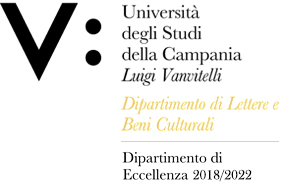Giuseppe PARDINI
Insegnamento di STORIA SOCIALE
Corso di laurea magistrale in FILOLOGIA CLASSICA E MODERNA
SSD: M-STO/04
CFU: 6,00
ORE PER UNITÀ DIDATTICA: 30,00
Periodo di Erogazione: Primo Semestre
Italiano
| Lingua di insegnamento | Italiano. |
| Contenuti | Il corso affronterà lo studio dell'Italia nel Novecento, partendo dalla crisi di fine secolo (1898-1900) per analizzare le varie fasi storiche che si sono susseguite negli anni, e che hanno dato vita a diversi sistemi politici, prima liberale, indi democratico, poi fascista e infine repubblicano. Particolare attenzione sarà riservata alla comprensione dei fenomeni culturali e sociali che hanno caratterizzato il lungo periodo del novecento italiano, e all'approfondimento dei più rilevanti cambiamenti della società e delle istituzioni politiche dello Stato. |
| Testi di riferimento | S. COLARIZI, Storia del ‘900 italiano. Cent’anni di entusiasmo, di paure, di speranza, Rizzoli, Milano, 2000, (pp. 1-504). |
| Obiettivi formativi | Conoscenze e abilità da acquisire sulla base dei descrittori di Dublino: |
| Prerequisiti | Nessuno. |
| Metodologie didattiche | Lezioni frontali (con eventuale partecipazione a seminari, convegni, esercitazioni). |
| Metodi di valutazione | Esame orale. Saranno valutate le capacità di ragionare in termini trasversali e interdisciplinari sui principali fatti storici, culturali e sociali del Novecento italiano, attraverso un esame orale, modalità di valutazione ritenuta adeguata a verificare il raggiungimento degli obbiettivi formativi indicati e a verificare altresì la capacità di analisi, la chiarezza espositiva e la correttezza linguistica raggiunte. |
| Altre informazioni | Una frequenza assidua al corso è raccomandata. A chi non ha potuto frequentare, si consiglia eventualmente un colloquio con il docente prima di intraprendere la preparazione dell'esame. |
| Programma del corso | 1. La crisi di fine secolo e le caratteristiche della società italiana: economia, istituzioni politica (1898-1901); |
English
| Teaching language | Italian. |
| Contents | The course will analyze the history of Italy during the twentieth century, starting from the crisis of the end of the century (1898-1900) and focusing attention on the several following historical phases over the years, which have given rise to different political systems, first liberal then democratic, then fascist and finally republican. Particular attention will be given to the most relevant cultural and social phenomena comprehension, which characterized the long period of the Italian twentieth century, and also to the most relevant changes in society and the political institutions of the State. |
| Textbook and course materials | S. COLARIZI, Storia del ‘900 italiano. Cent’anni di entusiasmo, di paure, di speranza, Rizzoli, Milano, 2000, (pp. 1-504). |
| Course objectives | Knowledge and skills to be acquired based on the Dublin descriptors: |
| Prerequisites | None. |
| Teaching methods | Frontal teaching lessons - Lectures (possible involvement in seminars, conferences, laboratory). |
| Evaluation methods | The examination will be conducted in oral form. Student evaluation is based on the application of oral assessment processes which reflect the level of course content attainment and the fulfillment of course requirements. |
| Other information | For non-attending students, perhaps an interview with the lecturer before taking the exam is recommended. |
| Course Syllabus | 1. The crisis at the end of the century and the characteristics of Italian society: economy, political institutions (1898-1901); |








